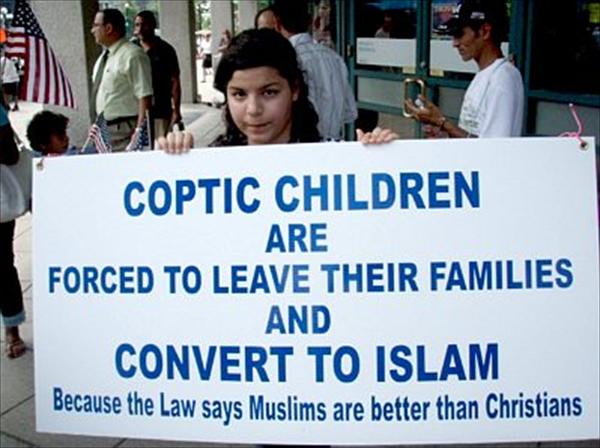Across Egypt, piles of ash where church pews once stood
Violence against Christians is not new in Minya, where there is a large Christian population. Many residents have vivid memories of attacks during the 1980s and 1990s, when a rising Islamic militant movement targeted Christians, especially in Upper Egypt. They tell stories of Christian pharmacies burned, of Christian university students beaten and tormented.
Under ousted leader Hosni Mubarak,
few were held accountable, and attacks were often followed by informal
“reconciliation councils” that denied justice to the victims. Violence
against Christian rose in the last years of Mubarak's presidency. Under
the military junta that took power when mass protests pushed Mubarak
from office, there was a surge in church attacks, again with little
justice for the victims.
But many here say life worsened when the Muslim Brotherhood's Freedom and Justice Party was elected
to office. Islamists in power seemed to encourage local extremists to
increase discrimination, insults, and attacks, they say. Most say the
wave of attacks on Aug. 14 was backlash from Islamists for being pushed
from power.
And if that was the price that must be paid for removing Morsi from power, then so be it, says church member Magdy Shafiq Saad.


“They
will always try to burn churches, whether in power or not. But in
power, they increased the discrimination and the humiliation of
Christians,” he says. “You can't go worse than the Islamists.”
The
security director in Minya refused a request for an interview, and the
Ministry of Interior in Cairo, which controls the police, did not
respond to multiple requests for interviews. But government officials
have defended the police's failure to protect churches and properties
under attack on Aug. 14 by pointing out that police stations also came
under attack, often first, keeping police from responding to the dozens
of other attacks.
At some churches in Minya, police responded to
calls about attacks, but only stayed for a short period of time, and
attackers simply returned when police left. At other churches, including
one within eyesight of the security directorate building, Christians
say police didn't respond to their calls for help until it was too late.
Constant threats
At
the Anba Mousa el Aswad Coptic Orthodox church, where Atallah and
Saadallah are members, the courtyard is littered with fallen mosaic
tiles and rubble. The interior has been gutted by fire, the fine
woodwork reduced to deep piles of black and gray ash. Sunlight shines
through broken windows, illuminating the wreckage of what had once been
an impressive sanctuary after a renovation finished in 2011.
The
renovations were paid for with church members' donations, and though the
building is in ruins, the loan payments are still due.


As in most
attacks, the mob looted the church before burning it. Several days
after the attack, a neighbor brought Atallah and Saadallah's a brass
incense lamp, one of the looted objects, saying others wanted the lamp
returned to the church. It was that same neighbor who returned a few
days later relaying the threat that their home would be burned if they
didn't pay 500 pounds.
Saadallah, a laborer, and Attallah, a
housewife, could scrape together the money, but they fear simply paying
will make them appear weak and invite further threats and abuse.
They
already live with threats, like the one recent delivered to their son
by a woman in the street. “She said 'Get out of here, you Christian kid,
or we'll slaughter you in your homes,'” says Saadallah. “We don't sleep
at all at night because we're constantly afraid they're going to come
and attack. So we're listening at the window or the door all night.”


Under Morsi
Thuggery replaces rule of law
In
Delja, the violence began when Morsi was ousted July 3. Angry mobs
burned and looted shops and homes, and Islamists there issued threats
against Christians, says Sakr, the lawyer who moved his family to Cairo.
On Aug. 14, Sakr says a cleric used the mosque loudspeakers to call on
neighborhood residents to take revenge against the “infidel Christians”
for killing Muslims in Cairo.
He and his cousin owned the only
Christian homes on the block nearest the mosque, he says, and the mobs
attacked both. They killed his cousin before dragging his body through
the streets, says Sakr. Sakr was able to escape with his family, the
family of his cousin, and other extended family members. Crowds burned
and looted his home and office, as well as other homes, churches and a
monastery in Delja.
“After that Wednesday, any Christian in the
area was targeted, so the calls started that the Copts have to leave
this area,” he says, adding that dozens of Christian families have fled
and many of those who remain are too scared to attend church services.
Those
who have stayed have also faced the theft of their land and livestock,
he says, and many are paying protection money. Armed men in the village
fired on security forces when they attempted to enter and restore order.
“Every
boy, girl, mother and father is living in terror,” he says. “And not
only the Christians are living in fear, but the moderate Muslims are
also. Terrorism and thuggery are the only laws now.”
No comments:
Post a Comment